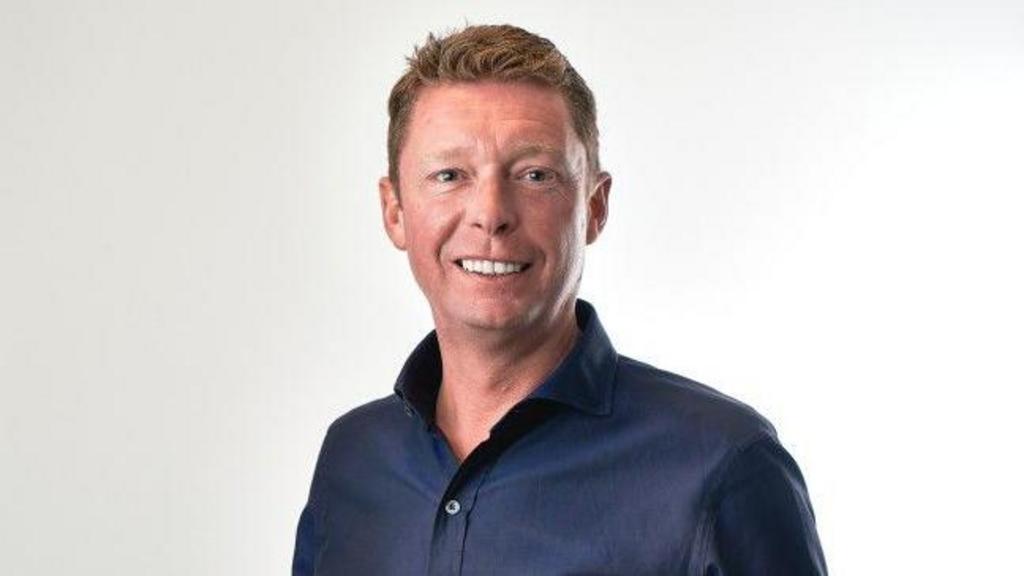John Roberts, the entrepreneur behind AO, speaks candidly about his views on business and the broader economic landscape.
Roberts, often dubbed the “kitchen king,” founded AO after winning a £1 bet that he could successfully sell discounted fridges and washing machines.
Now, 25 years later, he has undeniably won that bet and much more.
He currently leads a £564m UK enterprise, offering a wide array of household appliances, from televisions and laptops to refrigerators, washing machines, and smaller appliances.
Roberts’ journey is a British success story. As the founder and chief executive, he has grown the company, formerly known as Appliances Online, from its inception into a firm employing approximately 3,000 individuals in the UK.
The company has overcome challenges such as a post-COVID-19 trade slump and difficulties with international expansion, and has recently launched its first share buyback program and raised its profit forecast for the year.
These robust financial results stand in contrast to concerns about the current economic climate, a tough business environment, and reduced household spending on the kinds of major purchases that Roberts’ company specializes in.
Roberts entered the studio for the BBC’s new business podcast, Big Boss Interview, with considerable energy.
Despite his apparent success, Roberts expresses notable frustration, particularly regarding what he perceives as increasing obstacles imposed by the government on businesses like his.
He argues that tax increases, such as employer’s National Insurance contributions, and concerns about the forthcoming Employment Rights Bill have made it more difficult for businesses to take risks on hiring and to compete with Chinese rivals who do not face the same constraints.
“We can’t carry costs that some of our competitors are not carrying. It’s as simple as that,” Roberts stated.
“To not accept that is fantasyland, and we’re a UK success story. As a business, we employ thousands of people, we do great service. We’re rooted in the UK, and we should be turbocharged by our UK government, not disadvantaged.”
Following last autumn’s Budget, AO warned of facing an additional £8m in annual costs due to the April increase in National Insurance and the minimum wage.
Roberts cautions that such costs are creating “grit” for businesses like his.
“We should be talking about job creation, not enforcing things that make business leaders think twice about recruiting people and about giving somebody a chance,” he says.
“It will still put grit into our business and grit is cost, and that means that it’s harder to be competitive.”
Beyond business taxes, Roberts is also concerned about rising individual taxation levels, noting that he knows of wealthy individuals leaving the UK.
“What I really object to is the narrative that you can just keep taxing wealthy people and wasting the money. We are driving incredible amounts of wealth out of this nation,” says Roberts, who takes home his £546,000 annual salary, but has donated all his AO share options and any earnings from other investments to charity for the past 11 years.
His broader concern lies in the prospects for young people. Roberts acknowledges that he “won the postcode lottery of birth,” being raised in a loving family in the northwest of England and attending a good school.
He asserts that it is now “never been harder” for young people, accusing the government of neglecting their needs because “these kids don’t vote.”
“Politicians live in a world of votes, they only care about the votes,” he argues. “You try to take a Murray mint off a pensioner – uproar. But we’ve closed thousands of youth clubs. It’s a national disaster.”
He maintains that young people from low-income, disadvantaged backgrounds are not destined to fail, “but the hill to climb is so much harder.”
“I’ve been saying for years we’re teaching kids in school for all the jobs that won’t exist. We don’t invest in facilities and pathways as a nation for disadvantaged kids.”
Despite these frustrations, Roberts expresses a sense of motivation and optimism for the future, even with his expectation of an impending economic recession.
“I disagree that’s it not an environment to thrive in. The market is still huge, we are still a very prosperous nation and so in that is a tonne of opportunity.
“We have lived through a few recessions in the last 25 years. I see that as yet another opportunity.”
The Treasury stated that tax decisions made in last year’s Budget enable the government to “deliver on the priorities,” including investing in the NHS, reducing waiting times, and increasing wages for millions of British workers.
“We are a pro-business government that has capped corporation tax at 25%, the lowest rate in the G7, we’re reforming business rates, have secured trade deals with the US, EU and India,” a statement added.
The BBC is speaking to the bosses of some of the UK’s biggest firms to find out the stories behind the people that lead them.
Electricals retailer AO World says games consoles and iPhones are among products in short supply.
Consumer association Which? says most products were cheaper or the same before last year’s event.

